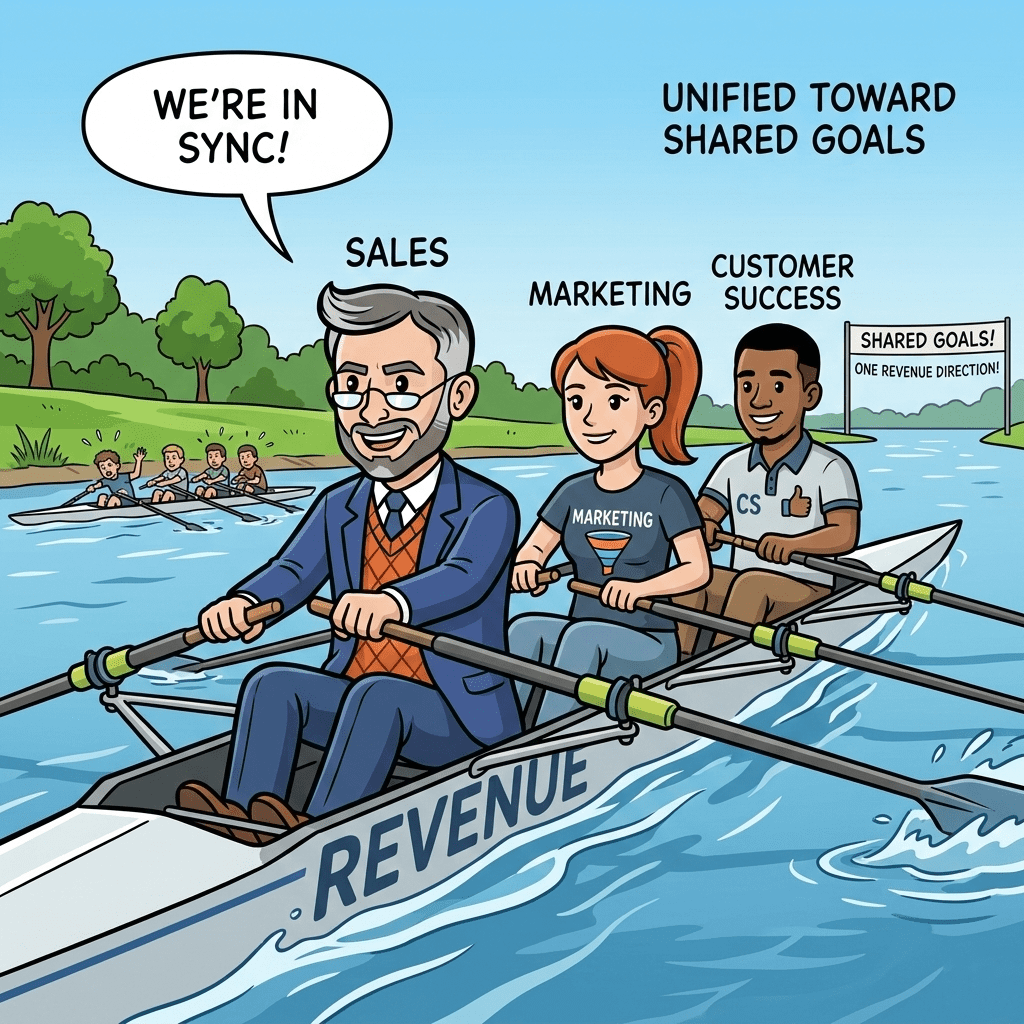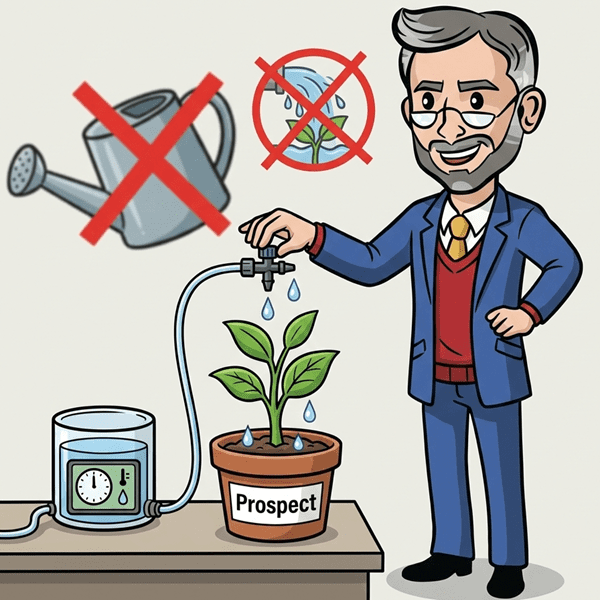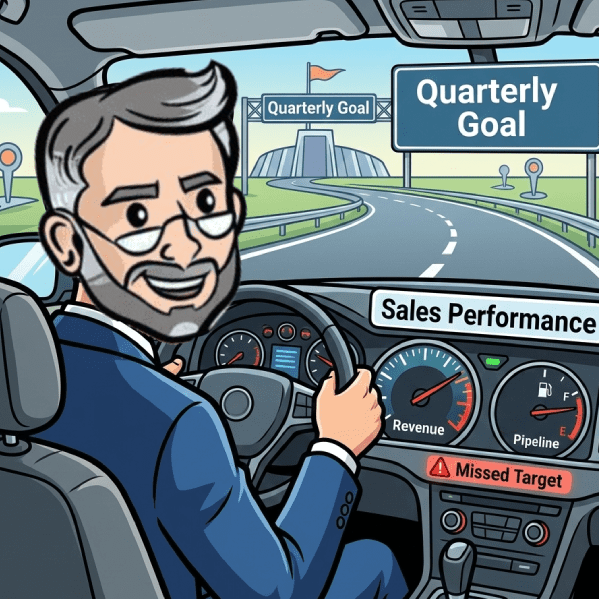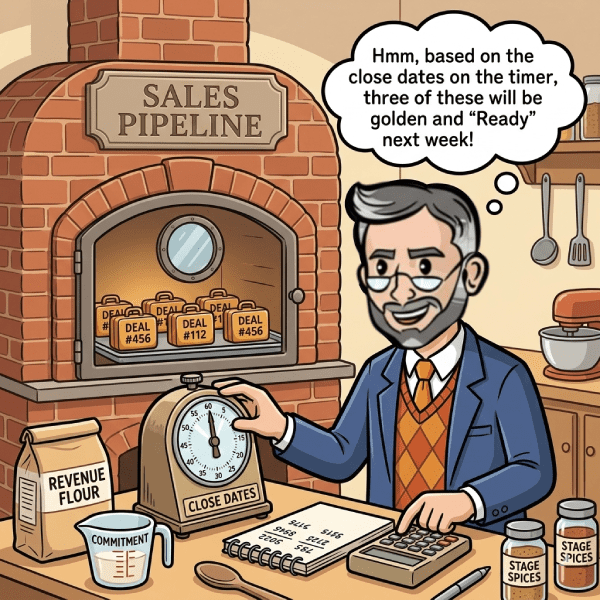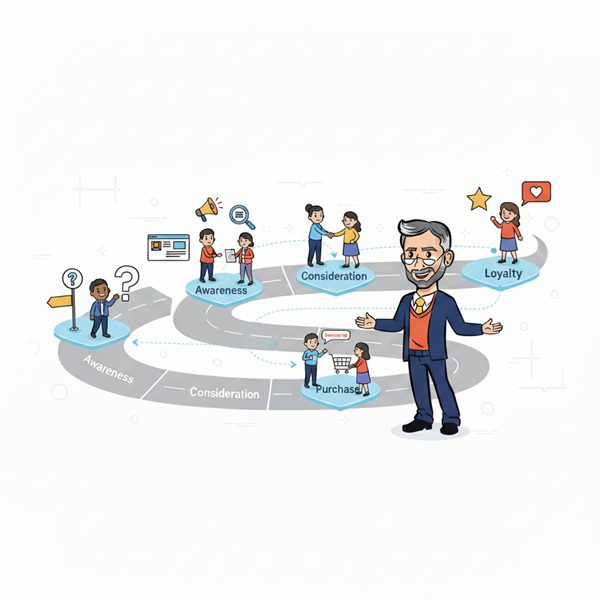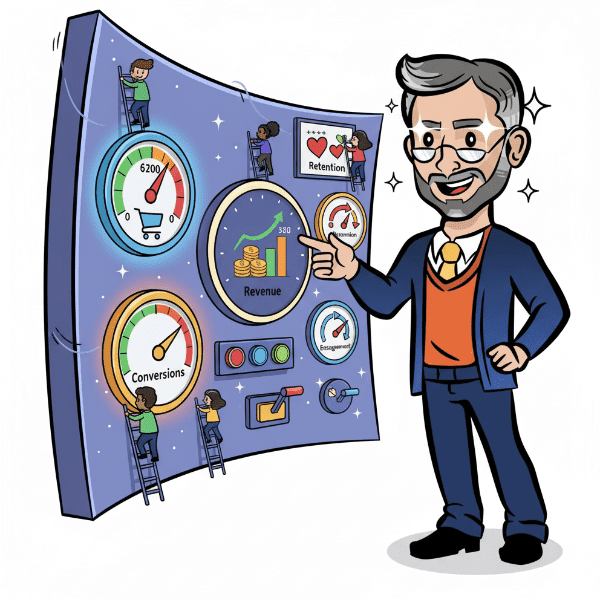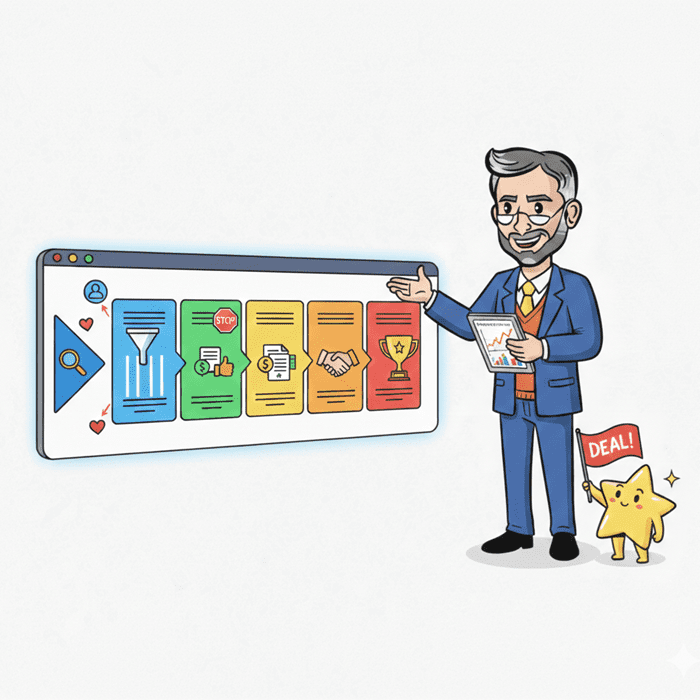Definition: A sales strategy is a structured plan that outlines how a business will sell its products or services to target customers in order to generate revenue and achieve growth goals. It defines the target market, value proposition, sales process, channels, and team structure, ensuring every effort aligns with company objectives.
Whether you’re building a B2B outbound motion, a high-velocity SaaS pipeline, or an e-commerce conversion funnel, a solid sales strategy drives consistency, predictability, and scalability across your revenue operations.
Use in a Sentence: To accelerate revenue, the startup redesigned its sales strategy around product-led growth and inbound lead nurturing.

Why Sales Strategy Matters
- Predictable Growth: Establishes repeatable processes that turn prospects into paying customers.
- Team Alignment: Ensures sales, marketing, and product teams work toward the same goals.
- Better Forecasting: Creates structure for measuring pipeline performance and revenue projections.
- Competitive Edge: Helps identify market positioning and differentiation strategies.
- Scalability: Makes it easier to onboard, train, and scale your salesforce as the business grows.
Key Elements of a Strong Sales Strategy
| Component | Description |
|---|---|
| Target Market | Define ideal customer profiles (ICPs) and buyer personas |
| Value Proposition | Clarify what makes your offer compelling and unique |
| Sales Funnel | Map awareness → consideration → decision stages |
| Channels | Choose direct, indirect, inbound, outbound, or partner |
| Tactics & Tools | Outline sales motions, scripts, CRMs, cadences, etc. |
| KPIs | Set performance metrics: CAC, CLTV, close rate, quota |
More Definitions & Related Blogs
Explore more revenue growth frameworks from Sales Funnel Professor:





